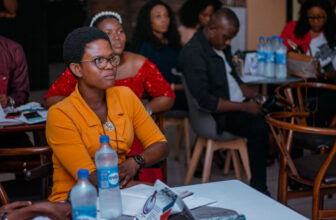
In the ever-evolving landscape of personal development, the quest to enhance cognitive abilities and elevate thinking prowess stands as a pinnacle. Becoming a master thinker isn’t an innate gift bestowed upon a select few; rather, it’s a culmination of deliberate habits and practices that anyone can adopt to sharpen their mental acumen. The journey toward mastering the art of thinking begins with acknowledging that the mind is a malleable entity, capable of transformation and growth. Here, we unravel the five pivotal habits that can guide you on the path to becoming a master thinker, enabling you to unlock your mind’s true potential.
Before delving into the fundamental habits that pave the way toward mastering the art of thinking, it’s imperative to grasp the essence of the key terms central to this exploration: thinking, habits, and mastery.
THINKING
Thinking, as delineated by David T. Moore, a prominent advocate of critical thinking, encapsulates the process of objectively linking current beliefs with evidence to entertain alternative perspectives. It involves a mental simulation wherein ideas are scrutinized and either discarded for potential harm or nurtured for the betterment of life. Consider the scenario of a disruptive driver on the road; the multitude of responses available varies in their efficacy to ensure a safe journey home.
Cognitively, our minds are equipped with an intuitive thinking system that relies on swift mental shortcuts, facilitating rapid solutions to intricate problems. For instance, assessing the distance to the car ahead employs this swift mental mechanism. Conversely, deliberate judgments, such as contemplating the adoption of an electric vehicle equipped with automatic emergency braking, call upon the slower but more meticulous aspects of our cognition.
Intuitive decisions, while swift, often harbor inherent flaws. Conversely, deliberate thinking, while more accurate, demands significant time and cognitive resources. Ideally, a harmonious amalgamation of swift, lightning-fast intuition coupled with impeccable objectivity in decision-making is desired. This amalgamation is where habits emerge as instrumental components in the pursuit of mastery.
HABITS
Habits, as defined by James Clear, the acclaimed author of “Atomic Habits: Tiny Changes, Remarkable Results,” encapsulate the small decisions and actions that constitute our daily routines. Clear emphasizes that our lives are essentially the amalgamation of these habits—an accumulation that significantly influences our trajectory. While habits often operate on an unconscious level, they remain adaptable, allowing us to intentionally develop or alter them for positive transformation.
In the realm of reasoning, our thinking habits serve as the collective framework determining the caliber of our thoughts. Some habits are detrimental, leading us to default to group consensus without independent contemplation, while others are productive, steering us toward the path of mastering our thinking capabilities.
MASTERY
Mastery, then, embodies a state of profound competence—what could be termed as unconscious proficiency. It is attained through extensive practice and experience, culminating in a level where actions flow seamlessly, almost effortlessly. Just as a proficient pianist effortlessly navigates keys without conscious deliberation or an expert driver shifts gears instinctively, mastery transcends the realm of conscious effort.
For a master thinker, mastery manifests as an innate ability to objectively intertwine present beliefs with evidence, fostering an evolution toward superior convictions. This individual cultivates indispensable habits that enable the instinctive evaluation of information, facilitating the selection of ideas that propel progress. Unlike more tangible skills like driving or playing an instrument, mastering the mind is a considerably abstract and elusive feat, demanding deliberate and meticulous curation of habits.
The pursuit of mastering our mind necessitates a judicious selection of habits, as it is in this ethereal realm of cognitive prowess that the impact of habits becomes even more critical and influential. With the understanding of these three terms we can now dive into some of these habits.
- Embrace Curiosity: The Catalyst for Innovation
Curiosity, often deemed the spark that ignites innovation, is the cornerstone of a master thinker’s repertoire. It’s the insatiable thirst for knowledge, the unending quest to question and understand the world around us. Cultivating curiosity involves actively seeking new information, exploring diverse perspectives, and constantly asking ‘why’ and ‘how’. A master thinker understands that every piece of knowledge, no matter how small, contributes to the grand mosaic of understanding.
Embracing curiosity involves stepping out of comfort zones, challenging assumptions, and being open to new experiences. Whether it’s delving into a new subject, engaging in thought-provoking conversations, or venturing into uncharted territories, the curious mind thrives on exploration. By nurturing this habit, one not only accumulates knowledge but also develops the ability to connect disparate ideas, fostering innovative thinking and problem-solving skills.
2. Cultivate Critical Thinking: Unraveling the Layers of Information
Critical thinking is the compass that guides a master thinker through the labyrinth of information. It involves analyzing, evaluating, and synthesizing information to form well-reasoned judgments. In a world inundated with data, the ability to discern facts from opinions, identify biases, and separate signal from noise becomes paramount.
To cultivate critical thinking, one must hone skills such as logical reasoning, analytical thinking, and skepticism. It’s about asking probing questions, scrutinizing arguments, and seeking evidence to support claims. By challenging assumptions and approaching information with a healthy dose of skepticism, a master thinker sharpens their mental faculties, enhancing their decision-making abilities and fostering a deeper understanding of complex issues.
3. Foster Creative Thinking: Unleashing the Power of Imagination
Creative thinking is the alchemy that transforms information into innovation. It involves transcending conventional boundaries, unleashing imagination, and generating novel ideas. A master thinker understands that creativity isn’t confined to artistic endeavors; it’s an integral aspect of problem-solving and ideation across all domains.
To foster creative thinking, one must cultivate an environment conducive to innovation. This involves nurturing a mindset that embraces experimentation, welcomes failure as a stepping stone to success, and encourages divergent thinking. Engaging in activities that stimulate the imagination, such as brainstorming sessions, mind mapping, or exploring unrelated fields, fuels the creative fire within. By embracing ambiguity and allowing ideas to flow freely, a master thinker unlocks the potential to innovate and create impactful solutions.
4. Practice Mindfulness: Harnessing the Power of Presence
Mindfulness, often associated with meditation, transcends the realm of spirituality to become a powerful tool for a master thinker. It involves being fully present in the moment, cultivating self-awareness, and developing the ability to observe thoughts without judgment.
By practicing mindfulness, one cultivates a heightened sense of focus and clarity. It enables a master thinker to declutter the mind, fostering a conducive environment for deep contemplation and reflection. Mindfulness allows for better control of distractions, enhances decision-making abilities, and promotes emotional intelligence, all of which are crucial components of effective thinking.
4. Pursue Lifelong Learning: Fueling the Growth Mindset
A master thinker perceives learning as a lifelong journey rather than a destination. Embracing a growth mindset involves adopting an attitude of continuous learning and improvement. It’s about acknowledging that intelligence and abilities can be developed through dedication and hard work.
To embrace lifelong learning, one must be open to acquiring new skills, seeking feedback, and embracing challenges as opportunities for growth. Whether it’s through formal education, self-study, or hands-on experiences, the pursuit of knowledge becomes a cornerstone of personal development. By nurturing this habit, a master thinker not only expands their knowledge base but also remains adaptable and resilient in the face of evolving circumstances.
In conclusion, the journey to becoming a master thinker isn’t confined to a singular moment of epiphany but rather a culmination of deliberate habits and practices. Embracing curiosity, cultivating critical and creative thinking, practicing mindfulness, and pursuing lifelong learning serve as the guiding principles toward unlocking the full potential of the mind. By incorporating these habits into daily routines, one can embark on a transformative journey toward becoming a master thinker, equipped to navigate the complexities of the modern world with clarity, innovation, and insight.






